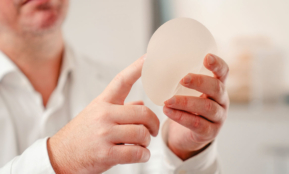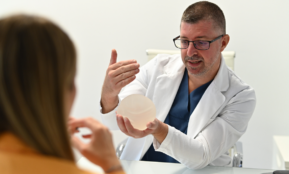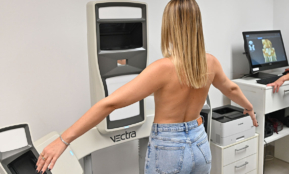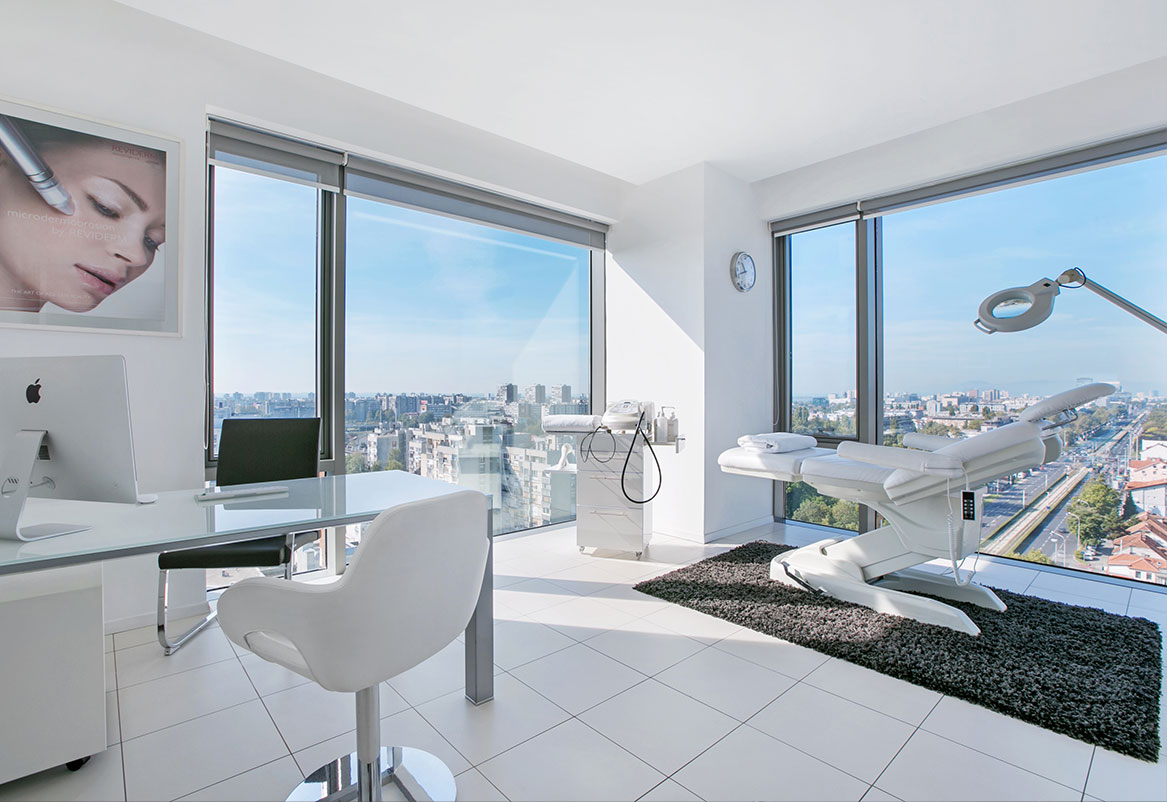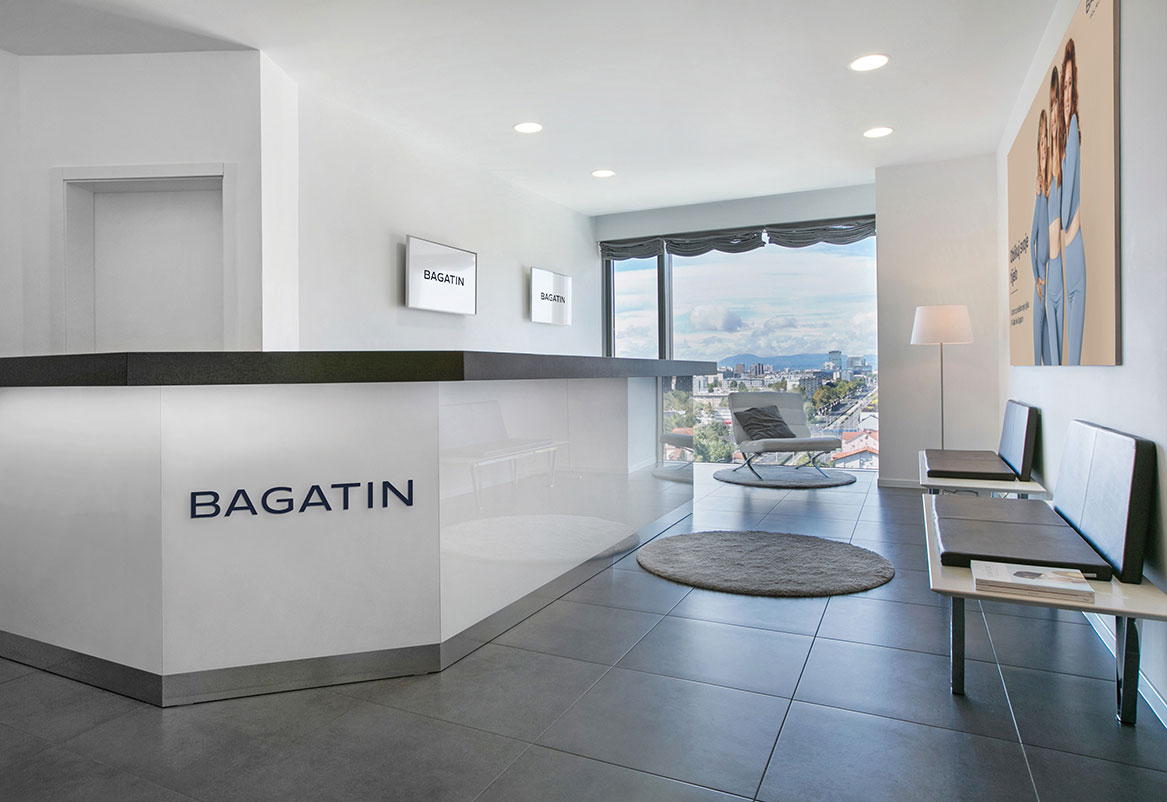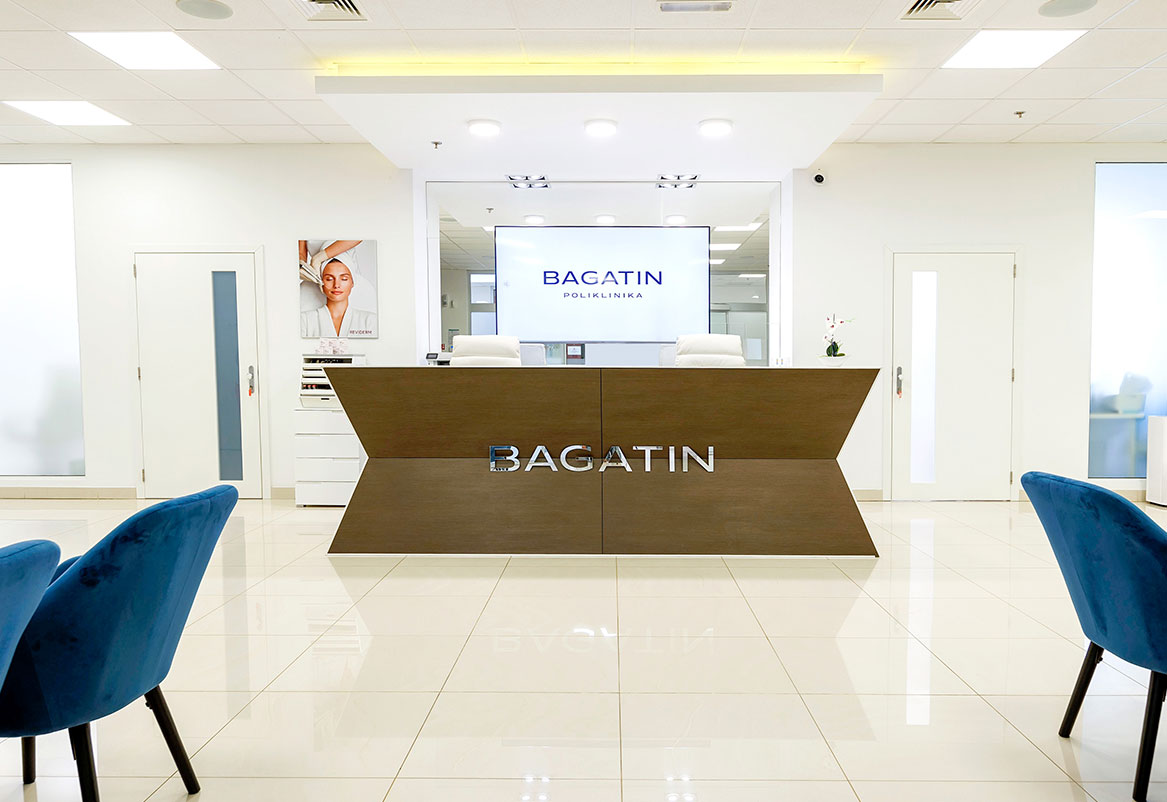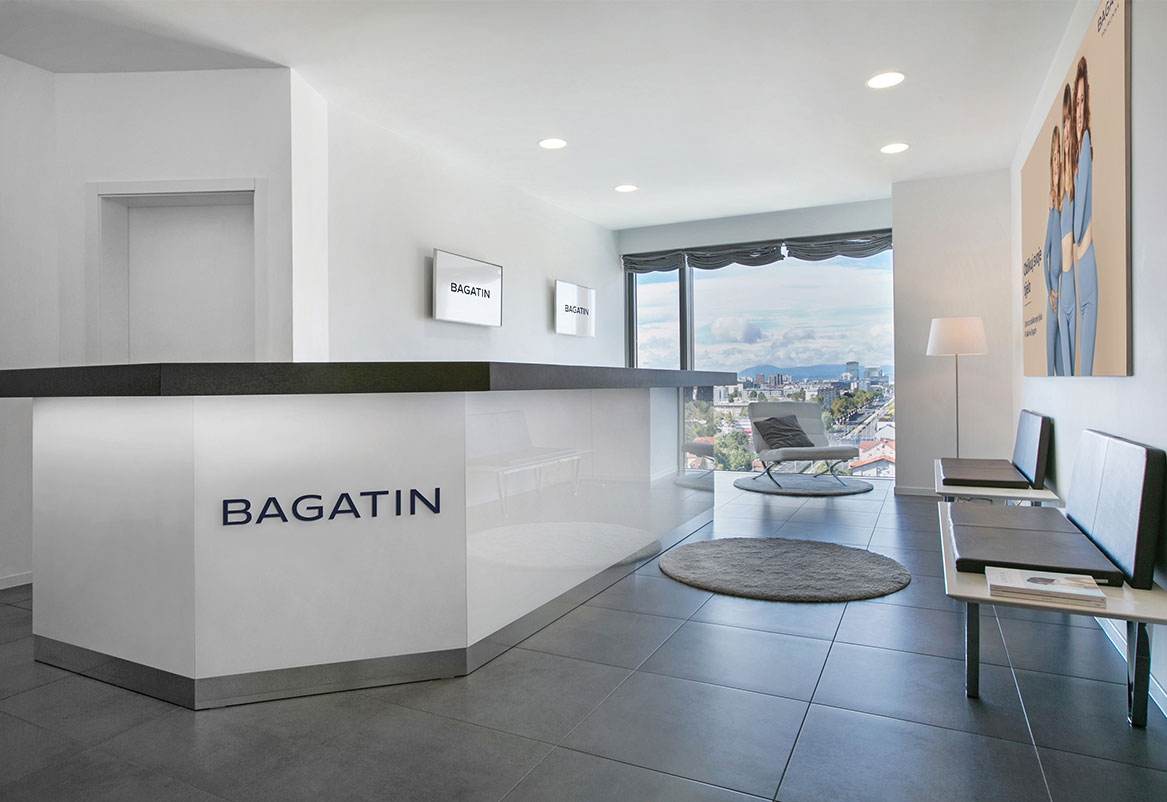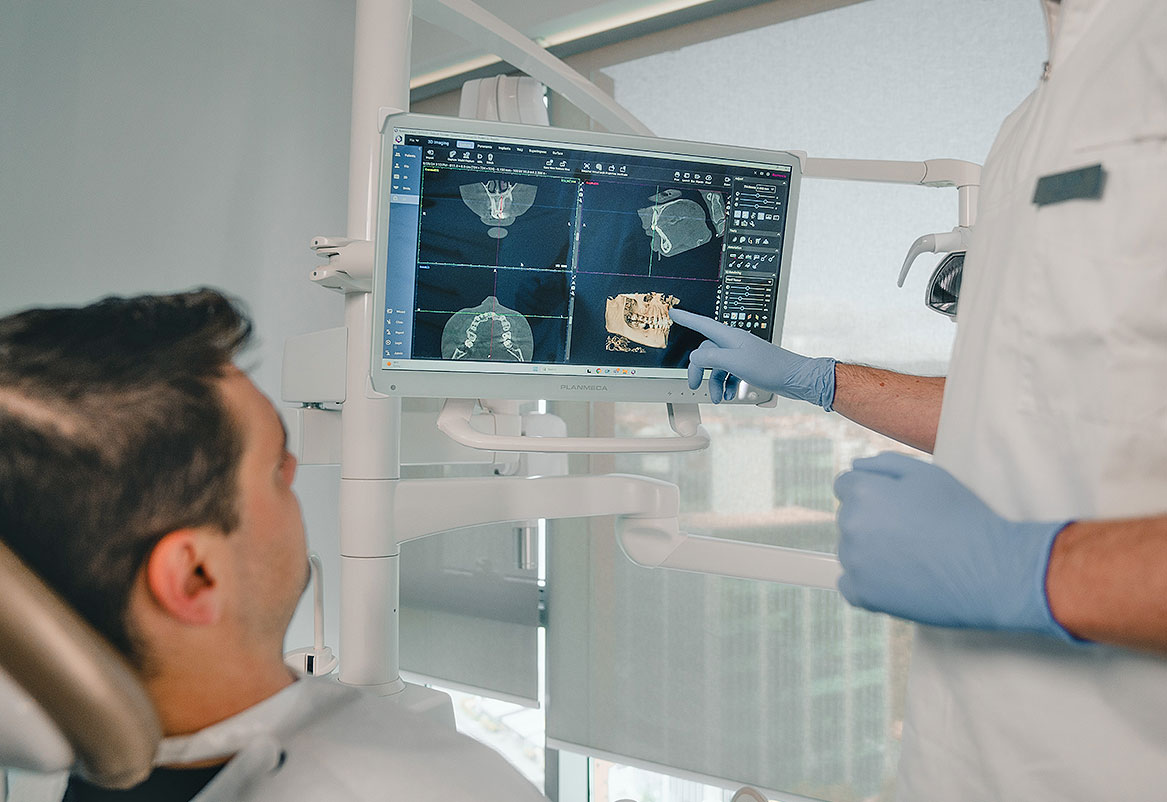Aesthetics
Face
The most modern facial treatments help you look younger, more elegant and happier.
Body
Feel comfortable in your body and correct sources of discomfort.
Chest
Make your wish for a better appearance come true and restore your self-confidence with aesthetic correction.
Hair and scalp
Minimally invasive solutions for hair loss and a natural look.
Issues
Find solutions to some of the most common aesthetic problems.
Treatments
Surgery
Treatments

Hair and scalp mesotherapy
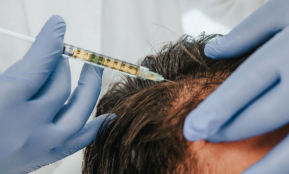
Thinning hair therapy with your own blood

Trichotest – DNA analysis of hair loss and baldness

Hair loss in women – causes and how to prevent it

Hair loss in men – causes and how to prevent it
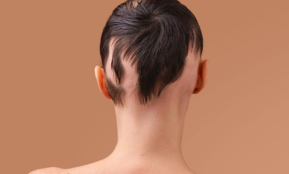
Alopecia – hair loss
FACE
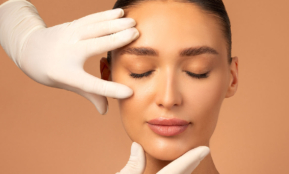
BODY
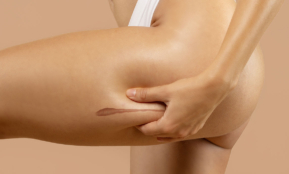
Implantology Center
Different methods of solving the problem of missing one or more teeth.
Prosthetics
The most common solution in cases of functional or aesthetic tooth damage.
Aesthetic Dentistry
Harmonious tooth shaping and tooth color correction according to your wishes.
General Dentistry
Modern and timely diagnostics, treatment and dental hygiene are the key to the health of your teeth.
Issues
Find solutions to some of the most common aesthetic problems.
About us
Locations
Description of the procedure
Periodontal procedures are aimed at eliminating the cause of inflammation and regenerating damaged tissues. Depending on the stage of the disease, treatment may include:
-
professional cleaning of plaque and tartar
-
deep scaling and polishing of tooth roots
-
laser therapy for selective removal of inflamed tissue
-
surgical methods for rehabilitation and regeneration of the periodontium
-
aesthetic procedures such as tooth crown lengthening
All procedures are performed with maximum precision and gentleness, to make the therapy as comfortable and effective as possible.
Candidates
A candidate for periodontal treatment is any person who:
-
has red, swollen gums that bleed when brushing
-
notices receding gums
-
feels tooth mobility
-
has chronic bad breath
-
has a family predisposition to periodontal disease
-
suffers from diabetes or a weakened immune system
Early diagnosis is key to successful treatment. Therefore, regular check-ups with a dentist are recommended.
Preparation
Before therapy, the patient undergoes a detailed examination that includes:
-
periodontal probing with a digital pa-on probe
-
x-ray analysis of teeth and bones
-
visual assessment of the condition of the gums
-
education on proper oral hygiene
Based on the diagnosis, an individual treatment plan is created. If necessary, an initial professional cleaning of the oral cavity is performed.
Procedure progress
-
Gingivitis (milder form of inflammation)
Treatment begins with the professional removal of soft and hard deposits above the gum level (tartar and plaque), and the patient is instructed on proper oral hygiene to prevent the inflammation from returning.
-
Early periodontitis
The therapy involves scraping and polishing the tooth roots (called curettage), which removes plaque located below the gum level, in periodontal pockets. This stops the progression of the inflammatory process and promotes tissue healing.
-
Advanced periodontitis
In more severe cases, laser therapies are used that precisely target inflamed tissues without damaging healthy structures, or surgical procedures that reduce the depth of periodontal pockets and restore damaged bone and tissue using regenerative materials.
-
Aesthetic procedures
When there is receding gums or a distorted smile line, procedures such as tooth crown lengthening are performed to correct the shape and level of the gums for a more aesthetically harmonious appearance.
Recovery
After the procedure, mild swelling and tenderness may occur, which will disappear within a few days. It is recommended to:
-
avoiding hard and spicy foods for the first 48 hours
-
enhanced oral hygiene with a soft toothbrush and antiseptic liquid
-
avoiding smoking
-
regular check-ups every 3 to 6 months
During surgical procedures, the patient receives detailed instructions and, if necessary, antibiotic and analgesic therapy.
Precautions
After periodontal procedures, it is important to follow the recommended measures to ensure optimal recovery and prevent the condition from worsening again. Here are the key precautions to follow:
-
Maintaining excellent oral hygiene – brushing your teeth gently but thoroughly with a soft toothbrush twice a day and using dental floss and/or interdental brushes regularly. An antiseptic mouthwash (e.g. chlorhexidine) is also recommended as directed by your dentist.
-
Avoiding smoking – smoking significantly slows down tissue healing, worsens inflammation and increases the risk of disease recurrence. It is recommended to quit smoking completely, especially during the treatment and recovery phase.
-
Proper diet – during the first days after the procedure, softer, bland food at room temperature is recommended, without spices and acids that could irritate the gums.
-
Avoiding physical exertion – after a procedure, especially a surgical one, strenuous physical activity should be avoided for a few days to prevent increased bleeding or swelling.
-
Check-ups – regular check-ups with a dentist every 3 to 6 months are crucial for monitoring the condition, timely responding to possible changes and maintaining the health of the periodontium.
-
Professional teeth cleaning – professional plaque removal and teeth polishing is recommended twice a year, and in more severe cases, more often, as recommended by specialists.
-
Avoiding self-initiated use of medications or dental products – all therapies and products should be used exclusively as recommended by a doctor to avoid irritation, allergies, or worsening of symptoms.
Price
In cooperation with banks, Bagatin Polyclinic provides the option of paying in installments, as well as interest-free payments up to a certain number of installments.
You can check more about payment methods and treatment prices in the current price list of the Bagatin Polyclinic:
They said about us...
Your
Frequently asked questions
Contact us
Contact us with confidence.
By filling out this form, our call center will contact you within 24 hours to arrange your appointment. We keep all information you provide us with in the strictest confidence.
Phone:
E-mail:


